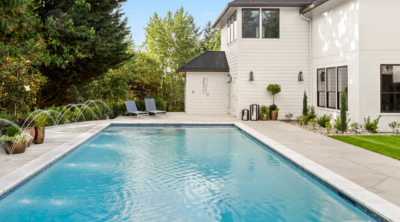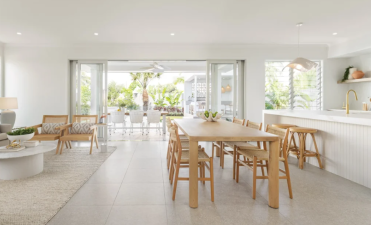Why Are Swimming Pools a Must-Have in Modern Homes?
As living standards improve, more and more modern families are owning private swimming pools, family pools, and villa pools. Swimming is a popular recreational activity and a basic survival skill, but a shortage of swimming pools has long hindered the development of swimming. With rising social standards, home pools are becoming increasingly popular as garden swimming facilities.
Swimming, a seemingly simple sport, actually has numerous health benefits, and family pools maximize the fun and convenience of swimming.
Swimming:
A Comprehensive Fitness Exercise
- Enhance Cardiopulmonary Function: Swimming is an aerobic exercise that effectively improves cardiopulmonary function and enhances physical endurance.
- Shape Your Body: Swimming evenly exercises muscles throughout the body, helping to build a toned figure.
- Reduce Stress: The buoyancy of water reduces stress and helps relieve tension.

Home Pool:
Enjoy a Private and Comfortable Swimming Experience
- Spacious: Compared to fixed-size bathtub-style pools, the spaciousness of the Infinity Villa Pool is more spacious, allowing you to fully experience freedom and comfort while swimming.
- Family Sharing: A home pool allows the whole family to enjoy the fun of swimming, fostering relationships and allowing them to spend quality time together.
- Customization: Private pools can be customized to meet your diverse fitness needs.
Daily Maintenance
- Controlling Bacterial and Viral Contamination
To control harmful bacterial and viral contamination, it is essential to properly dose disinfectants into the pool water. For home users, the most commonly used disinfectants are bromine and its compounds, and chlorine and its compounds.
Hypochlorous acid is the primary disinfectant, and its mechanism of action is:
① Penetrates microbial cell walls, destroying their proteins and enzyme systems;
② Eliminates organic and inorganic contaminants in the water through oxidation.
- Maintaining Pool Water Clarity and Cleanliness
Water clarity and cleanliness can be measured using the Total Dissolved Solids (TDS) indicator. TDS refers to charged chemicals that accumulate in pool water, particularly when the water evaporates or when insufficient fresh water is added. These substances are difficult to see with the naked eye, but their electrical conductivity can corrode various pool components, such as pumps, pipes, and filters. These substances typically exist in the form of chlorides or sulfates. Long-term use of sodium hypochlorite as a disinfectant can lead to chloride accumulation; regular addition of substances such as aluminum sulfate and sodium bisulfate can increase sulfate concentrations. Periodic backwashing and timely replenishment of fresh water are the best ways to control TDS.

- Stabilizing Pool Water pH
The pH of pool water should be reasonably stable, allowing for adjustment without significant fluctuations. Therefore, the total alkalinity should be maintained within a reasonable range. Furthermore, high alkalinity and a high pH can cause water turbidity and sediment formation; low alkalinity can corrode equipment and cause discomfort to swimmers.
- Adjusting Water Hardness
The water hardness should be moderate. Excessive hardness can cause aggregates to form on the pool walls, while excessively low hardness can corrode the mortar.
Hard water refers to water with a calcium ion concentration exceeding 250 mg/L and an alkalinity exceeding 150 mg/L. The pH of hard water is relatively stable, but increasing the hardness should not be used to stabilize it. For hard water sources, a water softener should be installed at the water inlet for pre-treatment. Soft water has a calcium carbonate concentration of less than 50 mg/L or a calcium chloride concentration of less than 30 mg/L. Maintaining a stable pH in soft water is difficult. Using calcium hypochlorite as a disinfectant can help increase water hardness.


